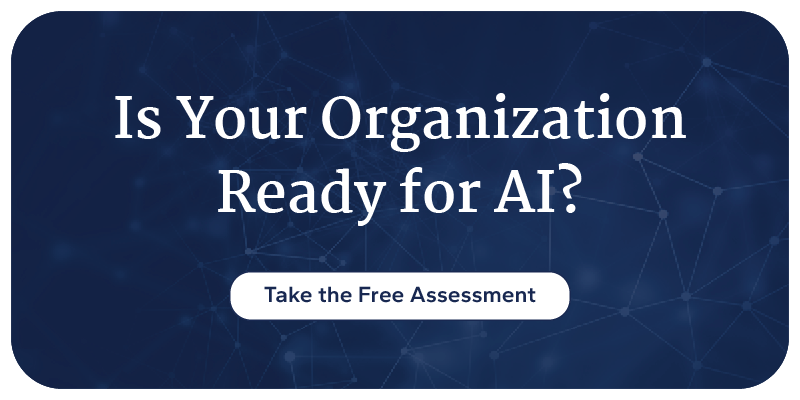Key Takeaways
- To overcome challenges like economic volatility and labor shortages, construction leaders must develop a comprehensive digital strategy.
- Cybersecurity remains a top challenge for decision-makers, with many struggling to balance innovation and safety.
- Forty-six percent of construction executives surveyed are prioritizing existing technology investments before adding new solutions.
From economic volatility and fluctuating material costs to labor shortages and productivity issues, construction executives are looking to technology as a means to maintain a competitive edge and solve challenges.
Based on the needs and goals of the industry, here are the key areas of technology that construction organizations must focus on to improve performance:
Data Collection & Management
Poor data management and utilization can contribute to significant project inefficiencies and budget overruns. With proper data handling, organizations can address these issues, streamline operations, and enhance decision-making processes.
Research suggests efficient data capture and standardization can result in a 13% savings on total construction project spending.
Despite recognizing the value of data, many construction entities still rely on paper records or non-digital processes in their workflows. Without a single source of truth, it is nearly impossible to make informed decisions in a timely manner.
Data collection is also crucial for organizations focused on sustainability efforts. The Global Alliance for Buildings and Construction reports that construction accounts for about 10% of total greenhouse gas emissions. Strategic and growth-minded construction leaders must track— or plan to start tracking — carbon emissions on their projects within the next 12 months.
Not sure where to start when it comes to data collection and management? We outline six ways to improve your data to drive performance in this article.
Cybersecurity & Risk Mitigation
A common barrier to digital transformation within construction is overcoming concerns around data security. It’s a double-edged sword — companies must become more digital to stay ahead of the competition, but more data and online information increases risk. Balancing innovation with safety can be challenging.
- Consider this: While the Internet of Things (IoT) provides incredible opportunities for site monitoring, predictive maintenance, and supply chain optimization, data privacy and security regulations may impact implementation.
The best solution to combat risk is not to avoid transforming but rather to prepare for and defend against threats. Most cybercriminals select targets based on accessibility, so investing in cybersecurity infrastructure and educating staff members can significantly help construction companies ward off these bad actors.
Whether you are transitioning from an on-premise system to the cloud, adapting to modern work, or concerned about the security of sensitive data, there are simple and effective strategies to safeguard your cloud environment.
AI & Automation
Many construction companies are looking for solutions to increase productivity, make teams more efficient, and reduce rework. AI and automation (or, even better, AI-enhanced automation) can offer promising opportunities to reshape how the construction industry operates.
Construction decision-makers believe one of the most effective strategies for increasing profitability is to improve project pricing and enhance the accuracy of estimates.
AI can analyze large quantities of historical data from previous projects, including material costs, labor expenses, and timelines. By identifying patterns and trends, AI can predict future costs with greater precision.
Additionally, machine learning algorithms can be trained on extensive datasets to create cost prediction models.
Implementing generative AI also allows organizations to streamline processes, reduce manual workloads, and enable employees to focus on tasks that require creativity and critical thinking. This shift drives innovation and growth, helping construction entities remain productive and efficient despite labor shortages.
Even so, organizations must take careful and strategic steps to harness AI effectively. From preparing your data to defining business objectives and establishing a plan for change management, successful AI implementation must start with a plan.
Technology Optimization & Combination
With economic volatility causing many construction organizations to analyze their current costs, many are reassessing their technology investments.
According to a survey by Procore, 22% of construction professionals feel they need to evaluate their existing tech stack, and 23% want to consolidate their investments to lower costs.
To better understand the impact of your current technology investments, consider the following:
Align technology investments with the strategic objectives of your organization. Prioritize tools that support long-term goals and scalability.
Identify major contributors to technical debt. Resolve short-term fixes that have become embedded in processes.
Eliminate redundant tools that perform similar functions. Combining overlapping technologies can streamline processes and reduce costs.
Evaluate whether a comprehensive tool can replace multiple specialized solutions. This can simplify technology management and minimize the complexity of your tech stack.
Consider the total cost of ownership for each tool, including licensing fees, maintenance costs, and training expenses. Eliminate high-cost tools that do not provide proportional value.
By taking these steps, construction industry leaders can systematically evaluate their technology investments, identify opportunities for optimization, and make informed decisions about consolidating or adopting new solutions.
Moving Forward
Leveraging modern solutions to address challenges is crucial for long-term success. But first, you must develop a comprehensive digital strategy. A reactionary approach focused on quick fixes and imitating competitors will only result in technical debt and convoluted data.
An advisor can assist in developing a roadmap for strategically applying technology across your organization. At Eide Bailly, our team combines business acumen with technology expertise to help construction businesses of all sizes integrate strategic solutions into their daily operations.
Make a habit of sustained success.

Construction & Real Estate
Who We Are
Eide Bailly is a CPA firm bringing practical expertise in tax, audit, and advisory to help you perform, protect, and prosper with confidence.



